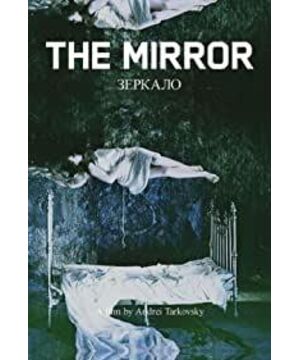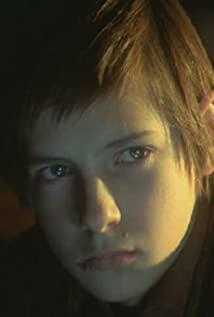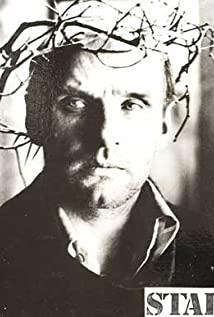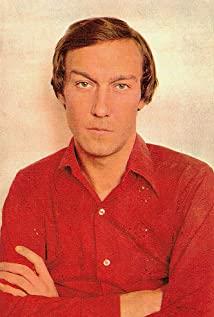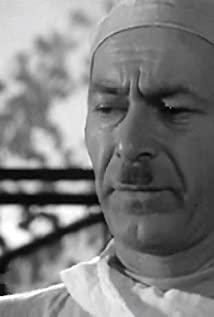0.5B
①The fire does not capture people's reactions, but shows things like barking dogs, wet wooden houses, glass windows, and bottles falling to the ground, weakening the main events and strengthening the secondary events.
Extending a question: what place should the story occupy in the film? Movies and games have a certain affinity, which means that the story should not only be the end of the movie, but the beginning of the movie, especially for directors like Tarkovsky and Bresson. But when the starting point ≠ giving up the narrative, the narrative is even an anti-story. An example is when Jetsfield wrote "A Tender Night" in flashbacks. During the flashback, the characters became "alive" and began to rebel against the author's intention. Deviating from the framework of the story. The story is rational, clear and objective, while the narrative is emotional, ambiguous and subjective.
② The anti-poetic nature of Tarkovsky is similar to that of Agatha Christie's image of an old woman: after seeing a murder, the old woman's description to the police is very stammered and incoherent.
In "Mirror", the first scene of the male protagonist watching the treatment of stuttering on the TV triggered memories of national siege and family changes. But this kind of memory is incomprehensible, incoherent, and time and space are disconnected. When Tarkovsky edited himself, he couldn't even cut it more than 20 times.
③Another interesting issue that extends out is: invisible narrative. In the vernacular, it is "subtext" and "flavor". For example, in "Love in the Wind and Dust", when the boy sends the girl home, he is asked "why come back late", the boy answers "I missed a bus", and the boy and the girl are together When I came back, it means "I missed a bus just to wait for her". This is what I find most interesting, and it corresponds to the "love should be silent" that I have always said before.
Another point is that our narrative of past experiences reconstructs a story. Some things that happened to us in the past may not be aware of the emotions at the time, but at a certain moment in a certain time and space, through a narrative of the past event, we will discover the emotions. This is the subversion of the narrative to the story, which will lead to a delayed understanding and reconstruction.
④Analysis of the relationship between the mother and Aunt Lisa: Because the whole movie of "Mirror" is the subjective perspective of the male protagonist, the most natural and realistic scenes are also subjective. The picture of black and white imagined memories is actually a "closeness" of the male protagonist to his mother.
The mother runs in the heavy rain, and "rain" implies tears in life; the sound of the rain suddenly stopped after the mother came to the unit, which is the male protagonist's belief that work is the only way for the mother to breathe a sigh of relief under the pressure of life, and the lights in the office are very bright, like the sun. But there was still trouble at work—the constant roar of the printing presses. This is the most delicate male protagonist's emotional description of the mother's past image, and through these subtle descriptions, the film's plot is promoted.
⑤ "Poetry" is not Tarkovsky's goal, but a by-product of his attempt to ascend to reality. Obsessed with "poetic" will obscure Tarkovsky's true pursuit - peeling off the conventional, dead, cliché skin of all the things in this world with the most realistic images.
"Sculpting time" does not mean copying a piece of time that is most memorable. First of all, we must understand the meaning of the word "time". Time is not a linear standard time on a physical scale, but rather a continuous stream in which density, hardness, and ductility are constantly changing with your experiences and thoughts. So the world is never inherent and persistent, but mutable and creating. If you are sharp and attentive enough, behind the appearance of the visible picture in the ordinary sense, you can grasp another invisible and profound world.
The most important thing in literature, music, painting, sculpture, theatre, architecture, cinema has never been the visible, but the invisible.
All Tarkovsky's efforts are to break the chains of everyday logic (intuitive visual poetry), to open up a more open and expansive possibility, to clear an area and allow the invisible to manifest itself.
However, vision has its inertia, and the illogical combination of pictures, even if it is guaranteed by strong authenticity, it is easy to fall into the daily logical perception, and it is only a pile of "poetic fragments".
How to avoid this phenomenon? This is a question that all film and television practitioners should think about, especially in the era of short videos where people's attention is becoming more and more fragmented.
View more about Mirror reviews


